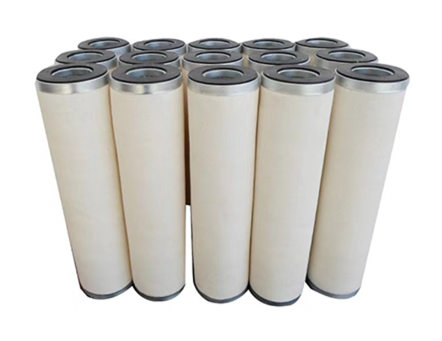 Tel:
+8615930870079
Tel:
+8615930870079
Out . 12, 2024 16:53 Back to list
Efficient HEPA Cartridge Filter for Enhanced Air Quality and Filtration Performance
Understanding HEPA Cartridge Filters A Comprehensive Guide
In today's world, the importance of clean air cannot be overstated. As urbanization and industrialization continue to rise, so does the need for effective air purification solutions. One of the most trusted technologies in air filtration is the High-Efficiency Particulate Air (HEPA) filter. Among the various configurations of HEPA filters, HEPA cartridge filters have gained popularity, particularly for their versatility and efficiency.
What is a HEPA Cartridge Filter?
A HEPA cartridge filter is a specialized air filter that is designed to trap a wide array of airborne particles, making it a vital component in many air purification systems. According to strict standards set by the U.S. Department of Energy, to qualify as a HEPA filter, it must remove at least 99.97% of particles that are 0.3 microns or larger from the air passing through it. This means that HEPA cartridge filters can capture dust, pollen, smoke, pet dander, and even some bacteria and viruses, providing cleaner air for indoor environments.
The Design of HEPA Cartridge Filters
HEPA cartridge filters are typically characterized by their cylindrical or rectangular design, which allows them to fit into various machines, including vacuum cleaners, air purifiers, and HVAC systems. The cartridge construction consists of a densely packed web of fibers, usually made of glass or synthetic materials, designed to create a maze where particles are trapped. The configuration helps increase the surface area, thus enhancing filtration efficiency and ensuring longer filter life.
The Working Principle
hepa cartridge filter

The effectiveness of HEPA cartridge filters lies in several removal mechanisms, including interception, inertial impaction, and diffusion. As air flows through the filter, larger particles get trapped through direct interception. Medium-sized particles are captured due to their inertia when they collide with the filter fibers. Smaller particles, on the other hand, undergo Brownian motion and are more likely to be captured as they collide with the fibers. This multi-faceted approach is what makes HEPA cartridge filters exceptionally efficient at removing airborne contaminants.
Applications of HEPA Cartridge Filters
These filters have a wide range of applications across various sectors. In residential settings, HEPA cartridge filters are commonly used in vacuum cleaners and air purifiers. They play a crucial role in improving indoor air quality, especially for individuals suffering from allergies or respiratory conditions. In commercial and industrial environments, HEPA filters are essential in cleanrooms, laboratories, and manufacturing facilities where air quality is critical. They help maintain the integrity of products and processes by eliminating harmful contaminants from the air.
Maintenance and Replacement
To ensure optimal performance, it is essential to maintain and replace HEPA cartridge filters regularly. Depending on the usage and the environment, the lifespan of a HEPA filter can vary. In general, it is recommended to replace HEPA filters every 6 to 12 months in home appliances, while industrial filters may have longer lifespan depending on their operational duties. Regular checking for clogs or dirt accumulation is crucial, as a blocked filter can reduce efficiency and affect overall system performance.
Conclusion
In conclusion, HEPA cartridge filters play a vital role in air purification technologies. Their ability to capture fine particles and allergens makes them indispensable for both residential and industrial applications. As we become more aware of the importance of indoor air quality, investing in systems equipped with HEPA cartridge filters can significantly contribute to healthier living and working environments. By understanding how these filters work and ensuring their proper maintenance, we can harness their full potential in promoting better air quality for everyone. Whether you're newly inclined towards air purification or seeking to optimize your existing systems, incorporating HEPA cartridge filters can be a decisive step towards cleaner air.
-
Nano Fiber Technology: Revolutionizing Cartridge Dust Collector FiltersNewsAug.06,2025
-
How Activated Carbon Air Cartridges Eliminate OdorsNewsAug.06,2025
-
Dust Filter Cartridge Handling Fine Particulate MatterNewsAug.06,2025
-
Cartridge Dust Collector Filter for Welding Fume ExtractionNewsAug.06,2025
-
Activated Carbon Filter Cartridge Effectiveness Against VOCsNewsAug.06,2025
-
Activated Carbon Air Filter Cartridge Benefits ExplainedNewsAug.06,2025

 Email:
Email:





